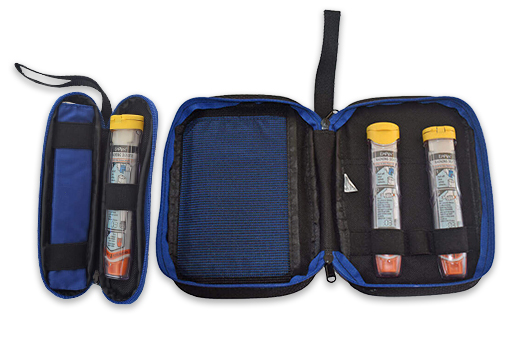Did you know that not all people with allergies are at risk of severe allergic reaction or anaphylaxis? We answer five questions to help you with your allergy journey.
What is anaphylaxis?
Anaphylaxis is a severe allergic reaction to one or more triggers and may be life-threatening. Common triggers include different kinds of food, insect stings, latex and medications, but there are others.1
Are all people with food and insect allergies at risk of anaphylaxis?
Not all people with allergies are at risk of anaphylaxis.1 It is more common for people to experience a mild or moderate reaction to their allergy triggers.2
How do I know if I am at risk of anaphylaxis?
It is crucial to speak to a GP if you are concerned that you or your child may have an allergy to food, insect stings, medicines or other triggers. Your doctor will ask you questions about your symptoms. If required, your doctor will arrange tests for you and/or refer you to a specialist.1
Note: Only a qualified medical professional can help you determine if you or your child are at risk of a severe allergic reaction and what allergies you may have.
What common signs and symptoms of anaphylaxis may be present?3,4
- Persistent dizziness or collapse.
- Difficult or noisy breathing.
- Wheezing or persistent cough.
- Swelling, especially of the face, lips, tongue or throat.
- Vomiting, diarrhoea and stomach cramps.
- Skin rash, hives or itching.
- Difficulty talking and/or hoarse voice.
- Pale and floppy (young children).
NOTE: A severe allergic reaction is a medical emergency and requires urgent first-aid followed by treatment by a medical professional. What to do if you think you have the symptoms of anaphylaxis?
My doctor prescribed EpiPen®. Is that all I need?
EpiPen® and EpiPen® Jr. Adrenaline (epinephrine) Auto-Injectors are designed to help treat the symptoms of a severe allergic reaction combined with immediate medical or hospital care.3
EpiPen® is not a cure and will not prevent a reaction. If you or your child are diagnosed as being at risk of anaphylaxis, you need regular consultations with your doctor, who will teach you how to avoid your triggers, provide you with an ASCIA Action Plan as well as prescriptions for EpiPen® or EpiPen® Jr.1
























